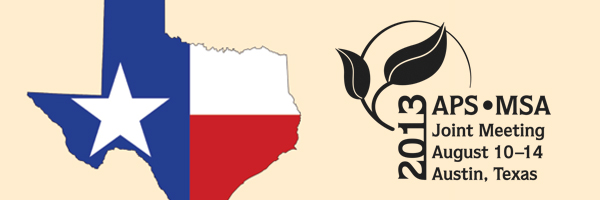APS Homepage
Back

Poster Session: New and Emerging Diseases - Bacteria
© 2013 by The American
Phytopathological Society. All rights reserved.
421-P
Importance of potato volunteers as a source of ‘Candidatus Liberibacter solanacearum’ in the Columbia Basin of Oregon and Washington.
J. E. EGGERS (1), S. I. Rondon (1), A. F. Murphy (1), P. B. Hamm (1)
(1) Oregon State University, Hermiston, OR, U.S.A.
Zebra chip (ZC) disease caused by ‘C. Liberibacter solanacearum’ (Lso) was first reported in OR and WA in 2011. The importance of Lso infected potato volunteers as pathogen sources in OR and WA is untested. Potato cultivars Umatilla and Ranger fields heavily infected with ZC in 2011 were surveyed 11 May 2012 for symptomatic volunteers. Symptomatic plants were tested by PCR to confirm the presence of Lso. Of the tested symptomatic plants, 48.6% of the Ranger and 53.3% of the Umatilla were positive. The percent plants per acre that were both ZC symptomatic and Lso positive were 4% (Umatilla) and 7% (Ranger). To determine if seed tubers from Lso infected plants could be a source of the bacterium, naturally infected tubers from 6 potato cultivars were collected fall 2011, stored in a potato storage facility and planted, with healthy seed (control), in a screen house in the spring of 2012. Symptomatic plants were tested for the presence of Lso. ZC incidence and severity in seed tubers was determined for each cultivar. Overall emergence was 53% for tubers from infected fields and 99% from healthy seed. Of the emerged test plants, 10.3% showed ZC symptoms, and 58% of these plants were positive for Lso. ZC symptomatic plants emerged faster, were smaller, and died earlier than asymptomatic and healthy controls. Although plants emerged with Lso from infected tubers, they are not likely to be a significant source of Lso in OR and WA due to mitigating factors.